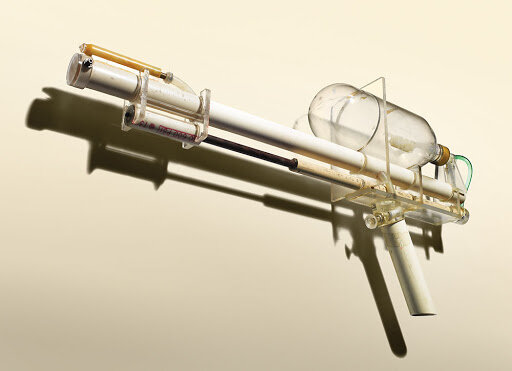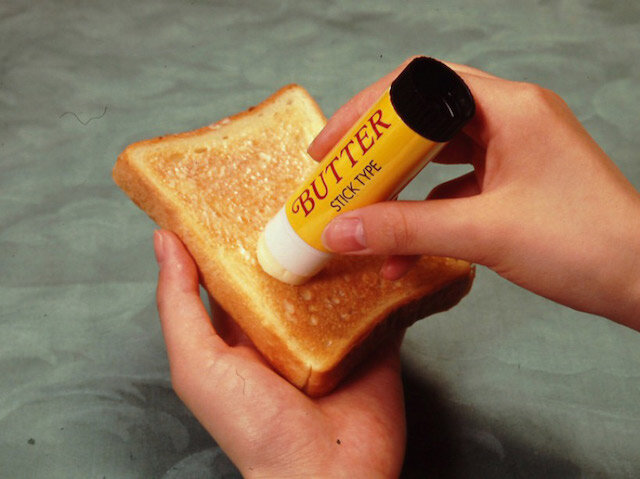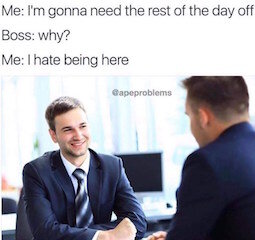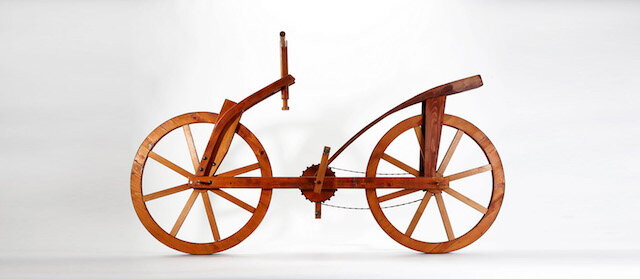“Even if someone can’t give you a job. They can still give you a story.” – Bill Burnett
For those of you struggling with a regular midlife crisis, I highly recommend reading the New York Times bestseller ‘Designing your life’ by Silicon Valley innovators Bill Burnett and Dave Evans.
Aside from being an entertaining read, it also teaches you how you build a new career by applying the same design process used to develop some of the most amazing technology products. This process is called prototyping.
Burnett and Evans define prototyping as:
“A process of experimentation during which designers turn their ideas into something tangible so they can capture them better and test them on users.”
By building these prototypes, designers can refine and validate their designs, so they can eventually release the right products.
Prototypes are nothing more than shitty first drafts and often don’t look anywhere near like the final product. I mean take a look here at the prototype of the Super Soaker – for generations now the weapon of choice for small-town bullies on their way to becoming teenage dads.

Prototypes are nothing more than shitty first drafts and often don’t look anywhere near like the final product. I mean take a look here at the prototype of the Super Soaker – for generations now the weapon of choice for small-town bullies on their way to becoming teenage dads.
Or this one here below, a prototype of the iPhone back in 1983. A throwback to simpler days when most people would still rather lose a kidney than a thumb.

The 'butter stick' sadly never made it past the prototype stage.

What is career prototyping?
When applying this to career transitioning, prototyping means trying out a mini-version of the future self you might like to become.
Or as Dave Evans describes it: “Test-driving some possibilities but doing it in water up to your knees, not over your head.”
Good prototyping will help you challenge particular assumptions you might have about a specific career option. It should answer a whole series of questions around:
Environment: Would I enjoy the workspace? Does it involve a lot of time spent indoors/outside? Would I be on my feet all day? How much travel is involved?
Cause: Would I find enough work? Do I feel strongly about the cause? Could I handle this line of work emotionally?
People: What personality types could I expect as colleagues/customers? How much teamwork is involved? What activities am I supposed to do on my own?
Pace: What’s the workload or a typical day look like? What does a terrible day look like?
Finances: How long might it take me to break even? Where would I find clients? Who is my competition?
Type of work: Which tasks would I need to do daily? What would I want to do more of/delegate? How much admin is involved?
Growth? Can I see myself doing this for a long time? What’s next for someone in this position? What is job stability like? Is the industry growing?
There are two ways you can prototype a new line of work: by having informational interviews and through work experiments which I’ll explain below.
Don’t confuse prototyping with fake work – the stuff you do when you’re coasting or when you’re not quite sure what you should be doing. Fake work involves activities like researching industries, tweaking your CV, writing lists, etc. It’s ‘fake’ because it’s getting-ready-to work instead of actual work.
Nothing wrong with doing your research of course – except that changing careers isn’t an intellectual exercise like writing a college paper. You don’t ‘find your passion’ by thinking your way out of it. You find it by applying a designer’s mindset that’s biased towards action.
Let’s look at both tactics now in a bit more detail.
Informational interviews
The fastest way to prototype an alternative career is to talk to someone who’s already doing it – a person with real-life experience in the field you’re interested in.
Informational interviews are entirely different from a job interview, in that you are the one asking the questions – not the other way around. Beware, however. If your interviewee is under the impression that you’re seeking employment, they’ll almost certainly close the door on you thinking they can’t help you. In other words, when doing an informational interview, don’t do the talking, only the asking. This is not the time or the place to pitch yourself.

This Careershifters article offers some great tips on who to reach out to, and how.
Also, don’t feel shy about reaching out to strangers. Remember that most people love talking about themselves. Besides, you’d probably feel a little flattered too if someone got in touch to interview you about the amazing life they think you must be leading. In addition, most people get a thrill knowing they’re helping someone forward – even if they don’t personally benefit from it.
Don’t be vague and be upfront about how much time you’d like from them. In your initial approach, make a point to highlight that you’re not asking for a foot in the door.
Work experiments
Work experiments are short and snappy hands-on trials of your dream career. They’re small-scale and non-committal experiences that give you a real-life flavour of what it’s like to work in a particular area.
Here are a few options:
Offering your services for free. Fantasising about life as a health coach? Start by offering some free sessions to friends and acquaintances. If you notice that the experience of reaching out to a few trusted people in your network with a free offer is already giving you heart palpitations, then being self-employed might not be the best career for you.
Volunteering. Offering your services as a volunteer puts you in the front line with face-to-face interactions and a sense of immediacy that only working in the field can offer.
Shadowing. Find someone whose role you’re interested in and ask to shadow them for a day or even a few hours. See what their days and their office environment look like. Find out what challenges they face.
Freelancing. Freelancing can be a great way of developing a parallel career. A good way in for self-starters, particularly those working in creative industries. Although often badly paid, websites like Fiverr, Upwork or 99Designs list thousands of freelance roles from copywriting to dog sitting.
Conferences and seminars. Not quite on-the-job experience, but these type of events open a nice window onto a field you might be interested in. Even virtual conferences can be a great way to learn more about trends while also getting to know some of the industry movers and shakers. Again, draw a clear distinction between experimenting and pitching yourself.
Work experiments can be humbling, inspiring, disappointing, shocking, eye-opening and confusing experiences – often all at once. But they offer a useful insight into the kind of challenges you might need to tolerate in your dream career.
Conclusion
It can be tempting to tell your boss to stuff it after another particularly bad day at work. But unless in specific circumstances, I wouldn’t advise resigning your job without being clear on your next move.
Instead, spend some time prototyping different work experiences and careers. Talk to a couple of doing who are already doing it or spend some time getting actual work experience.
Both options are available to you anytime, even if you’re currently in a different career. Informational interviews and work experiments also encourage you to involve others in your search by helping you build a network of allies willing to help you along.
Interviewing others, building your network and starting small, non-committal work experiments mean you’ll no longer step into the unknown once you’re ready to move on.

